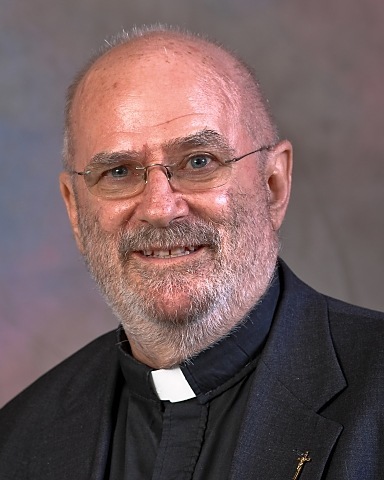May 14, 2012
This is the fourth in a series of previously unpublished reflections from the 1854 spiritual notebook of Paulist Founder, Servant of God Father Isaac T. Hecker. The reflection series is being made public in conjunction with Father Hecker’s cause for canonization. Following the reflection is a response from Paulist Father John Behnke, CSP.
Humility
St. Ignatius Loyola once said “the shortest method to perfect oneself in humility is to do the exact opposite of worldly men, to hate what they seek and to seek what they hate.”
He who is humble may be said to be in prayer because the spirit of humility is the most perfect prayer. For humility is the recognition and the understanding that we can do nothing without the aid of God. This understanding that we are entirely dependent on God for what we are and what we can do is an uninterrupted prayer. Humility is an assessment of one’s self and prayer is recognition of our relationship with God. As the apostle says, (James 4:10) “Humble yourself before God and He will raise you up.”
The only place where we can gain a fair and complete view of God is that of our own nothingness. Our powerless acts as a mirror in which we see all; for our self excludes knowledge and our pride darkens the soul. What creature was more humble than the Blessed Virgin Mary, the Mother of God? And yet who has done so much for the redemption of humanity as she did? A humble virgin with a poor carpenter for a spouse, behold them O world reformers, philosophers and socialists, they are the great co-workers of Almighty God.
God knows how to humble and exalt the soul at the same time. The devil attempts to imitate God in this regard but is not as clever. He produces either pride or despair.
As St. Theresa of Avila said, “God allows himself to be conquered by our humility and on its account, God grants all that we ask.”
Response: Father John Behnke, CSP
Hand it over. Hand it all over. I can’t. God can. I think I’ll let him.
Humility is seeing reality the way it really is without rose-colored glasses. Humility is recognizing my powerlessness (our powerlessness). I can do nothing without the power, the strength, and the grace of the one who created me. Humility is recognizing that there is a God who created everything and sustains everything and I am one of his many lovingly sculpted creations. I am not his ambassador. I am not his envoy. I am a created being that relies totally on him for my existence. I can’t breathe on my own. My heart can’t pump on its own. Even my own creative thoughts are generated by God totally enveloping me with his love, his sustenance, his grace.
Often times we live in an unreal world. We sense we’re the center of the universe. The sun rises and sets over us. We know how things are to be done. We know how everyone should act. We’re the rules setters. We’re the ultimate judge of how things should be done. If only we were asked first, everything would turn out better. We pride ourselves on being little less than God. We’ve turned the world upside down.
Humility is righting the way we see things. There is a God and I am not he. I have to hand it over. I really can’t. God really can. I think I’ll let him be God, and I’ll be an immensely loved creature of his. God’s will be done, not my will. The way the world should be perceived and run.
Father John Behnke, CSP, is the superior of the motherhouse of the Paulist Fathers at the Church of St. Paul the Apostle in New York City.
About Father Isaac Hecker’s 1854 Spiritual Notebook:
Servant of God, Father Isaac Hecker wrote these spiritual notes as a young Redemptorist priest about 1854 and they have never been published. Hecker was 34 years old at the time, and had been ordained a priest for five years. He loved his work as a Catholic evangelist. The Redemptorist mission band had expanded out of the New York state area to the south and west, and the band’s national reputation grew. Hecker had begun to focus his attention on Protestants who came out to hear them. To this purpose Hecker began to write in 1854 his invitation to Protestant America to consider the Catholic Church, “Questions of the Soul” which would make him a national figure in the American church.
Hecker collected and organized these notes that include writings and stories from St. Alphonsus Liguori, the Jesuit spiritual writer Louis Lallemant and his disciple Jean Surin, the German mystic John Tauler, St. Thomas Aquinas and St. Jane de Chantal among others. These notes were a resource for retreat work and spiritual direction and show Hecker’s growing proficiency in traditional Catholic spirituality some ten years after his conversion to the Catholic faith. They are composed of short thematic reflections.
Publishing and disseminating the writing of Servant of God Isaac Hecker is the work of the Office for Hecker’s Cause.

